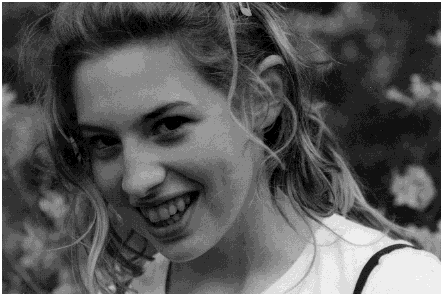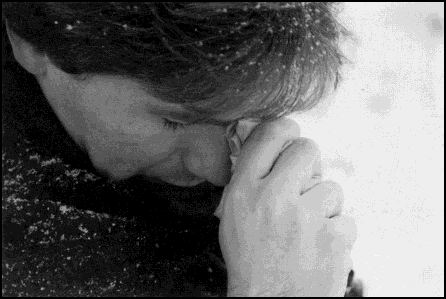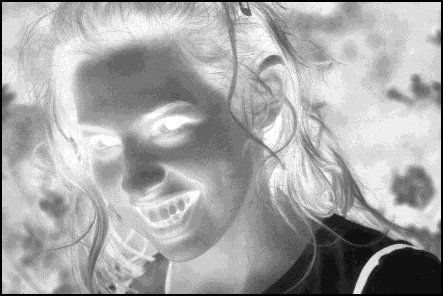Winterreise
A Winter Journey
In Poetry, Image,
And Song
John Harbison
Susan Youens
(University of Wisconsin Press)

One has to be forewarned. The two dozen poems of Wilhelm Müller that Schubert selected for "Winterreise" tell of a lonely lad wandering about, musing on his lost love, visiting the graveyard, revisiting the place's of their summertime love, thinking --- naturally --- on death. The lyrics are as corny as can be. And the translations given in this book are truly faithful to the Grand Decadent style of 19th Century verse, viz.,
How different was my reception when I arrived, you fickle town!...the robust linden trees were bursting with blooms.
Or,
Oh tears, are you so tepid that you stiffen with ice like the chilled morning dew.
Or,
Why should I tarry with those who are slumbering?
Or,
I often stop, lost in thought, and fix my gaze on a single, clinging leaf. The leaf becomes a vision of my hope.
And then, the wurst of the wurst, Das Wirsthaus (The Inn):
My path has led me to a graveyard. Here I shall go in. The green wreaths seem to invite weary travelers to enter, as if into a cool inn. Are all the rooms in this house filled? I am exhausted and near collapse, mortally wounded. Oh cruel inn, are you turning me away? Then we must trudge on, my faithful walkingstaff and I.
 There are some problems with the University of Wisconsin Press's rendering of "Winterreise." In this oversized volume, one or two lines from the songs, with translation, appear to the left. To the right are black and white photographs --- over a hundred of them. Many show a wan young man sprinkled with snow and misery, dressed in black coat and muffler, solemn of face, wambling about through icy fields, back roads, graveyards, fallen tree-trunks. He is accompanied at times by crows, dogs and many a hot tear.
There are some problems with the University of Wisconsin Press's rendering of "Winterreise." In this oversized volume, one or two lines from the songs, with translation, appear to the left. To the right are black and white photographs --- over a hundred of them. Many show a wan young man sprinkled with snow and misery, dressed in black coat and muffler, solemn of face, wambling about through icy fields, back roads, graveyards, fallen tree-trunks. He is accompanied at times by crows, dogs and many a hot tear.
Some of the shots limn his head framed against the desolate branches; in others he's holding a hanky to his eyes. He looks not unlike a student from Heidelberg University undergoing a hectic and possibly life-threatening hangover.
Every now and again there is juxtaposed with these a photograph of a rather vampirish young lady with hair-braid and houndstooth jacket. At times she is smiling up at us; at others she looks to be suffering from her own vicious hangover. Ah, the misery of young love!
For all their artiness, these photographs don't seem to add to our understanding of Schubert or "Winterreise" or the whole moist world of 19th Century passion. When Müller's verse mentions crows, we get pictures of black birds framed against bare tree limbs. One song tells of the post-man's horn, so we get a dutiful portrait of an 18th century horn. There is mention of a door, so there appears a 18th century door-knob. It puts us in mind of books designed for the kindergarten set --- see Mary cry, see Bob run.
What A Winter Journey is not able to capture is the mystery of Schubert. This was a man who could take exquisitely stupid poems and put exquisite music to them, music that works because it makes us forget all this acne-filled poetasting. (Bach was able to perform the same magic: the words to Bach's Passions and many of his cantatas are either very silly or overly doughty, but the music rises well above that.)
It takes a certain suspension of disbelief to get through this balderdash. To devote any time at all to Müller's verse --- much less an entire volume --- is a grave mistake. Performers know this well. I have yet to hear someone sing these songs in English without breaking down or breaking up. In German it's just bad poetry; in English it's a howl.
For the CD that accompanies this volume the editors enlisted one Paul Rowe to sing these songs. I've never heard him perform before and I hope to never again. I am crazy about "Winterreise," but I had to take this one off the CD player after Wasserflut, "The Flood." It was up to my knees. In keeping with the mood of Müller's musings, Rowe decided to go pale, thin and wan; he ends up sounding like one in the throes of a pneumothorax.
If one wants to hear the Winterreise with its necessary vigor and tragedy, exquisitely restrained, one must seek out the bellwether, the cycle as performed by Dietrich Fischer-Dieskau, accompanied by Gerald Moore. It's available on EMI. Fischer-Dieskau manages to con us into forgetting the lyrics, makes us concentrate on the music. Moore, as experienced an accompanist as there ever was --- he once wrote a very funny book about just such a job --- is quick, precise, and at the height of his powers in the 1962 recording.
 These poems can and do lend themselves to a more up-to-date rendering. For example, the lines in "Wasserflut"
These poems can and do lend themselves to a more up-to-date rendering. For example, the lines in "Wasserflut"
Wenn die Gräser sprossen wollen
Weht daher ein lauer Wind,
Und das Eis zerspringt in Schollen
Und der weiche Schnee zerrinnt
are, here, translated as
When the grass is ready to sprout,
a balmy breeze will waft over the ice;
the ice will splinter into shards,
and the soft snow will melt...
I contend that words like "balmy" and "waft" just don't cut the mustard in 2003. Scholar Celia Sgroi has translated them far more appealingly:
When it's time for the grass to sprout
There blows a mild wind,
And the ice will break apart
And the soft snow melt away
This is an admirable blend of the romantic and the modern; certainly doesn't make one grit one's teeth.
Those who have any interest in what we used to call "the art song" should pay especial attention to the final one in Winterreise. It is certainly one of the most mournful that Schubert penned --- one that crowns this cycle and, indeed, crowns Schubert's musical life.
Drüben hinterm Dorfe
Steht ein Leiermann
Und mit starren Fingern
Dreht er was er kann.
Barfuß auf dem Eise
Wankt er hin und her
Und sein kleiner Teller
Bleibt ihm immer leer.
Keiner mag ihn hìren,
Keiner sieht ihn an,
Und die Hunde knurren
Um den alten Mann.
Und er läßt es gehen,
Alles wie es will,
Dreht, und seine Leier
Steht ihm nimmer still.
Wunderlicher Alter!
Soll ich mit dir geh'n?
Willst zu meinen Liedern
Deine Leier dreh'n?
This is Ms. Sgroi's translation:
Over there beyond the village
Stands an organ-grinder,
And with numb fingers
He plays as best he can.
Barefoot on the ice,
He totters here and there,
And his little plate
Is always empty.
No one listens to him,
No one notices him,
And the dogs growl
Around the old man.
And he just lets it happen,
As it will,
Plays, and his hurdy-gurdy
Is never still.
Strange old man,
Shall I go with you?
Will you play your organ
To my songs?
Schubert died at the age of 32 of syphilis. As Susan Youens relates here, syphilis was the AIDS of the time: easily spread, no cure, leading one inevitably to madness and an acutely painful death. Schubert knew as early as 1823 that he had contracted the disease, and from common knowledge, knew that he would die of it soon enough, and, in the process, go mad. Thus, possibly, the bleak nature of these later works.
Some have seen this last song as a portrait of Schubert himself: isolated, dying, ignored by the world, poverty-stricken, surviving in the bitter cold of his last days with only the "snarling" critics circling about him.
But they are wrong. The vision of organ-grinder has been turned on its head. The hurdy-gurdy is the stuff of fairs and joyful street life. Here it has been transformed into the macabre. The piano performs a round, repeating and repeating, a woeful note not out of the merry street fair but more like the tolling of the church bell.
The organ-grinder here is the messenger of death, going 'round and 'round, surrounded by the dogs of hell. His plate is empty --- it's always empty --- and, in his rounds, he has all the time in the world to wait for the young man.
"Willst zu meinen Liedern?" --- will you play my lieder, asks the young Schubert. There is here a joining: the mournful sufferer- Together the two of them will be setting forth; leaving the cold world behind, bound for the place where loneliness and suffering no longer exist.